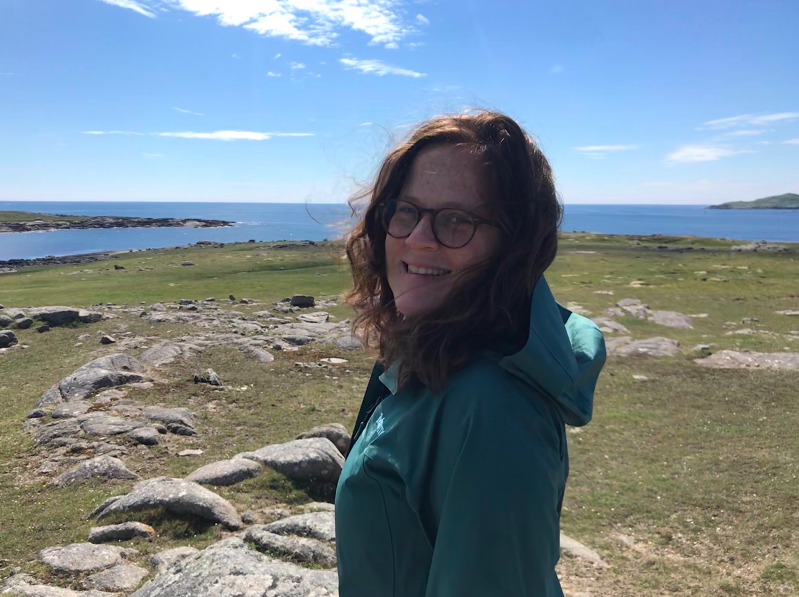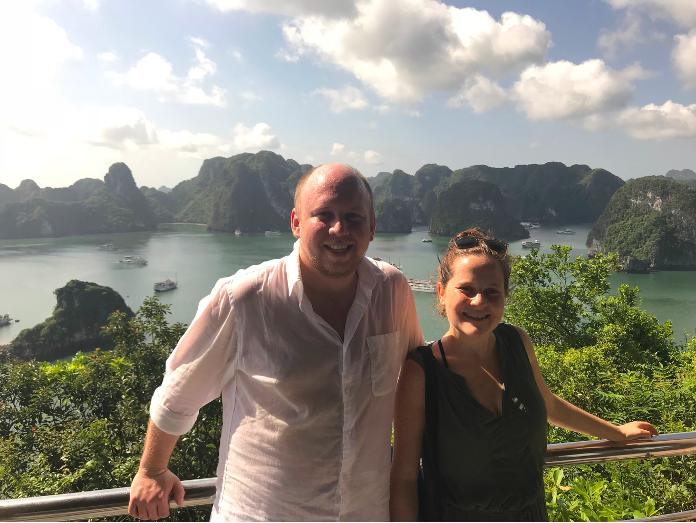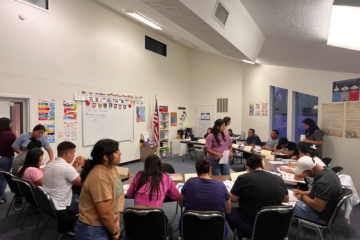Faces of BIIN: Vivian Bronsoler
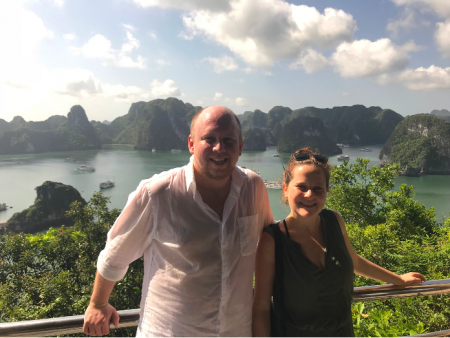
As a major university, Texas A&M brings many people and resources to the Brazos Valley. But there is also a flip side: the patterns of connection and movement that universities generate can lead some of our favorite friends, neighbors and volunteers to move away, when new opportunities beckon. We at BIIN have been blessed to benefit from the time and talents of Vivian Bronsoler, an active volunteer and BIIN board member who initially came to Bryan/College Station through TAMU. And we are sad to see that Vivian and her husband, Mathias Poertner, are moving away in May 2021, to take on new roles in London. As they pack and prepare for this new chapter in their lives, we want to recognize all that Vivian in particular has brought to BIIN over the past two years.
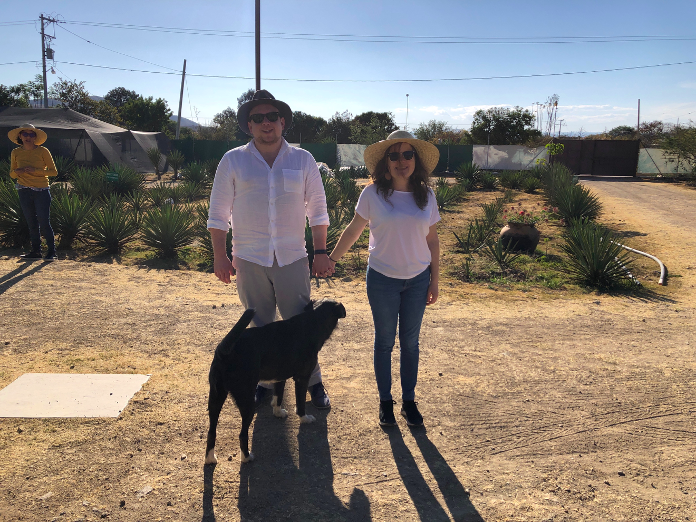
As Vivian explained, “Academics push the frontiers of knowledge,” but given their training, it can be a challenge for them to clearly spell out what practitioners engaged in community development should do. “I like this niche,” said Vivian, referring to the challenge of “translating research into action.” It involves “understanding the research and bringing that knowledge into the policy sphere, so that decisions can be based on evidence and research.” The skills that have enabled Vivian to grasp and engage with complex issues in the research and policy worlds — careful listening, the ability to find common ground, respect for different perspectives and forms of expertise, fluency in more than one language, among others — have also proven very beneficial to the work that Vivian has done as a volunteer with BIIN.
Vivian first learned about BIIN and its work from another political scientist, Emily Sellars, who was serving as an IRA volunteer in 2019 (when Vivian and Mathias moved to town). Eager to get to know “like-minded people,” Vivian reached out to IRA Coordinator Raul Dominguez-Cruz, applied and was soon trained to work with the IRA team.
As Vivian recalls, “It was hard when we first moved to Texas. But BIIN made me feel at home fast.” An immigrant herself, Vivian quickly understood and identified with the feelings of nostalgia and longing for home that other immigrants may feel: “Interacting with other immigrants helps you feel close to home in some ways.” She also dove right into the work of helping to staff the IRA drop-in clinic two nights a week (in its pre-pandemic, in-person mode), enjoying the chance to talk casually with and get to know the other members of the IRA team during lulls in the action at the BIIN office.
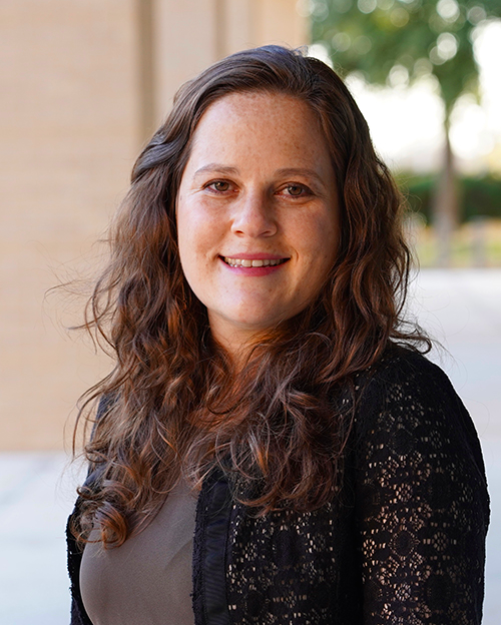
When the pandemic spread and the BIIN board decided to suspend all in-person programs, Vivian saw another opportunity to serve and quickly became part of the team of volunteers who began to implement the BIIN CARES Fund in April of 2020. As she recalled,
The challenge of BIIN CARES initially was how to distribute the funds. We needed to establish eligibility criteria, and to figure out efficient ways to process applications. With other volunteers, we developed a process to receive cases, to do an intake questionnaire, to prioritize the cases of people that were most in need. We used technology as much as possible, to do all of this. I was proud that we got it going very fast, and that soon we were disbursing checks to people who needed them. During the intake interviews, the stories we heard were heart-breaking. These people were among the most disadvantaged, and they were not receiving any help [from public funds]. But people kept telling us, ‘As soon as I can work, I will go back to work, I will keep working for a better life.’
Again, Vivian was impressed by the resilience of local immigrants, committed to doing what was needed to support their families. At the online “Sip and Learn” event in June 2020 where Vivian and fellow volunteer Clotilde Pichon shared stories from the initial rollout of the BIIN CARES Fund, the deep gratitude of the people served was a recurrent theme. As Vivian conveyed it, many of the fund’s recipients said that as much as they were grateful for the financial support, they were also deeply touched by the assurance that they and their families “were not forgotten.” This observation was a useful reminder of how powerful BIIN’s programs and initiatives can be, for they make it clear that all of our neighbors do indeed matter and belong.
Given Vivian’s many skills and keen interest in supporting BIIN’s mission, it was not a surprise when she was invited and agreed to join the board, in September 2020. Although this was the first time she had served on the board of a non-profit, she was quick to pick up on the role that a board ideally plays: “A board is needed to give direction, to bring together the efforts led by volunteers, and to make sure they have good conditions for doing what they do,” she explained. “You need a body that prioritizes how to spend limited resources and to support the programs. The board is responsible for fundraising and thinking about the future. It needs to have leaders with varied perspectives.”
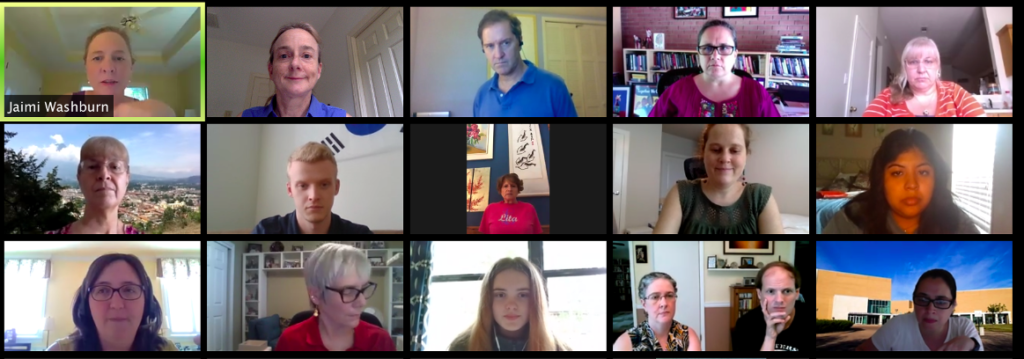
While historically, BIIN’s programs had been offered in person, the pandemic and the call for social distancing and public health measures created new challenges. By the fall of 2020, all of BIIN’s class-based programs had begun to use Zoom or other online platforms. The shift to remote delivery of services proved particularly challenging, however, for the IRA program, where people in need of assistance were accustomed to being able to come to the BIIN office during regular hours without an appointment and speak to a friendly volunteer in person. As Vivian explained, in the U.S. today,
Immigrants often face a hostile environment. But BIIN has a reputation of being a place that can be trusted. That’s why they would come and share personal stories with us. But if you can’t have this interaction face to face, it’s hard to maintain the trust. Our always being there was key to the trust.
When we changed to taking cases by phone [in March 2020], there were a lot of cases at first, especially people calling Tony directly. But many people do not feel comfortable talking about these kinds of issues on the phone. It took a while to establish a process for reaching us. Leaving a message is not the same. That’s why we decided to have monthly drive-through IRA events, to try to be this trusted presence.
It’s been slow for people to learn that we are there (one Saturday per month). But we are building this confidence again, and the numbers continue to grow. Moving forward, the IRA program will have to figure out how to keep building confidence and encouraging people to come to us.
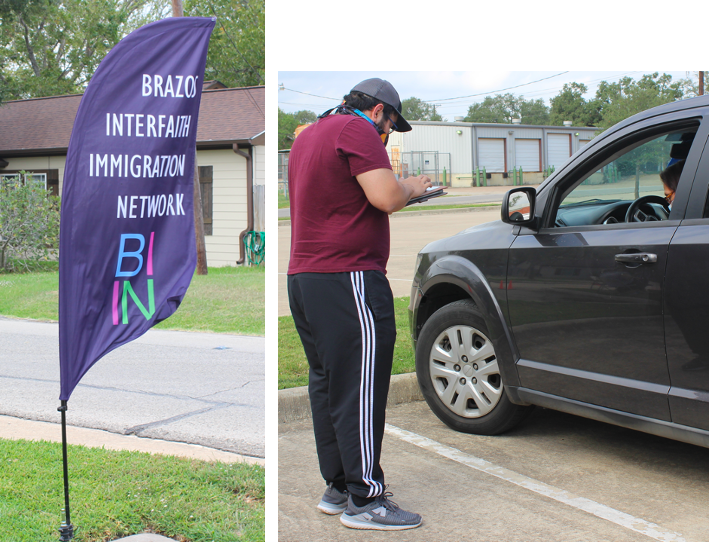
After joining the board, Vivian continued to serve as a volunteer with IRA and to help with administering the BIIN CARES Fund. In January 2021, as many local households still struggled to make ends meet, the board made the decision to extend the BIIN CARES Fund into the new year, but asked a subcommittee to review the process, to determine which steps would remain in the hands of volunteers, and which ones might more efficiently be done by a staff person. Vivian’s experience and skills in program evaluation were helpful in this regard. The subcommittee decided that a staff member would receive initial calls and assign cases to trained volunteers, who would then conduct the in-take interviews and establish eligibility and priority. Having the staff person process payments to landlords and utilities companies then made that part of the process more efficient.
When asked to reflect on what BIIN had accomplished over the past couple of years, Vivian underscored the resilience she felt the organization as a whole had demonstrated:
The pandemic really changed the way we operate. We had to be flexible and adapt to new conditions. The pandemic has shown that BIIN is fast and agile, quick to respond. You see it in the adaptation of BIIN’s programs, in BIIN CARES. It’s remarkable that we have been able to reinvent the way we provide services, by keeping the community first.
There is an incredible need for the work that BIIN does in the community, and the work we do is really life-changing for many of our clients. I’m proud of what BIIN does. I also see great opportunities to contribute. BIIN brings together like-minded people with amazing experiences. There is room to keep providing these services.
What are the most important needs in the immigrant community and that no one else is providing? IRA is really unique in the area. It’s the heart of what BIIN does. There is no substitute for that. The need is big. The challenge is to identify the unique need and what you can do with the scarce resources you have.
It’s important to be honest about the resources that we have, while also understanding that new needs will arise and leaving room for that. As a member of the board, I’ve learned a lot about how decisions are made and how hard it is to keep an organization going with scarce resources. You have to make tough decisions about what we ask of staff, volunteers, and what resources we put into different buckets. BIIN needs to make sure that before we develop new programs, we have enough resources, including volunteers and staff, to make it work. Everyone believes in what we do, but we have to reflect on what we can do next, to ensure the survival of the organization.
From her first day at IRA, when I met Vivian, I knew how important she would become. Her desire to help was very natural and her sweet personality enchanted all of us volunteers. Her commitment to our community was immeasurable and endless.
BIIN Director Jaimi Washburn also expressed deep gratitude to Vivian for all that she had done for the organization:
Vivian was a terrific board member to work with. She always had great ideas, responded quickly, offered to take on responsibility for projects to ease my workload. She always had a smile on her face and was a joy to work with. If she ever decides to change careers she should consider journalism. She conducted terrific interviews with Father Victor at Santa Teresa Catholic Church to help educate immigrants on the safety of COVID 19 vaccines, how to protect yourself from the virus, and where to get vaccinated. She was a real pro! The videos are on our website so you can see for yourself. We will miss her!
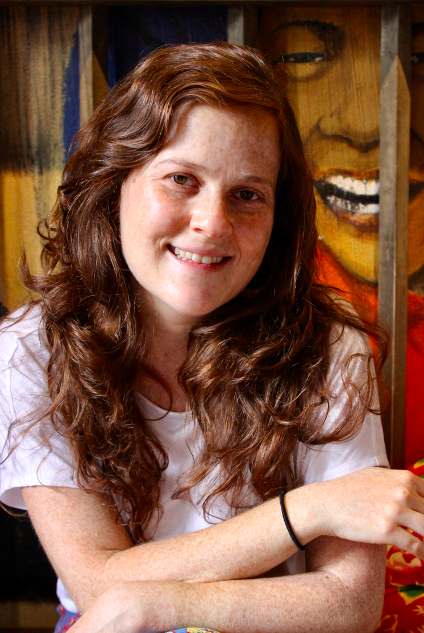
Working with BIIN was my favorite part of my time in Bryan/College Station. It made me feel close to home and allowed me to contribute to a mission close to my heart. BIIN helped me feel at home fast. I made good friends that I hope to keep close to me. And I will always be a friend of BIIN’s.
